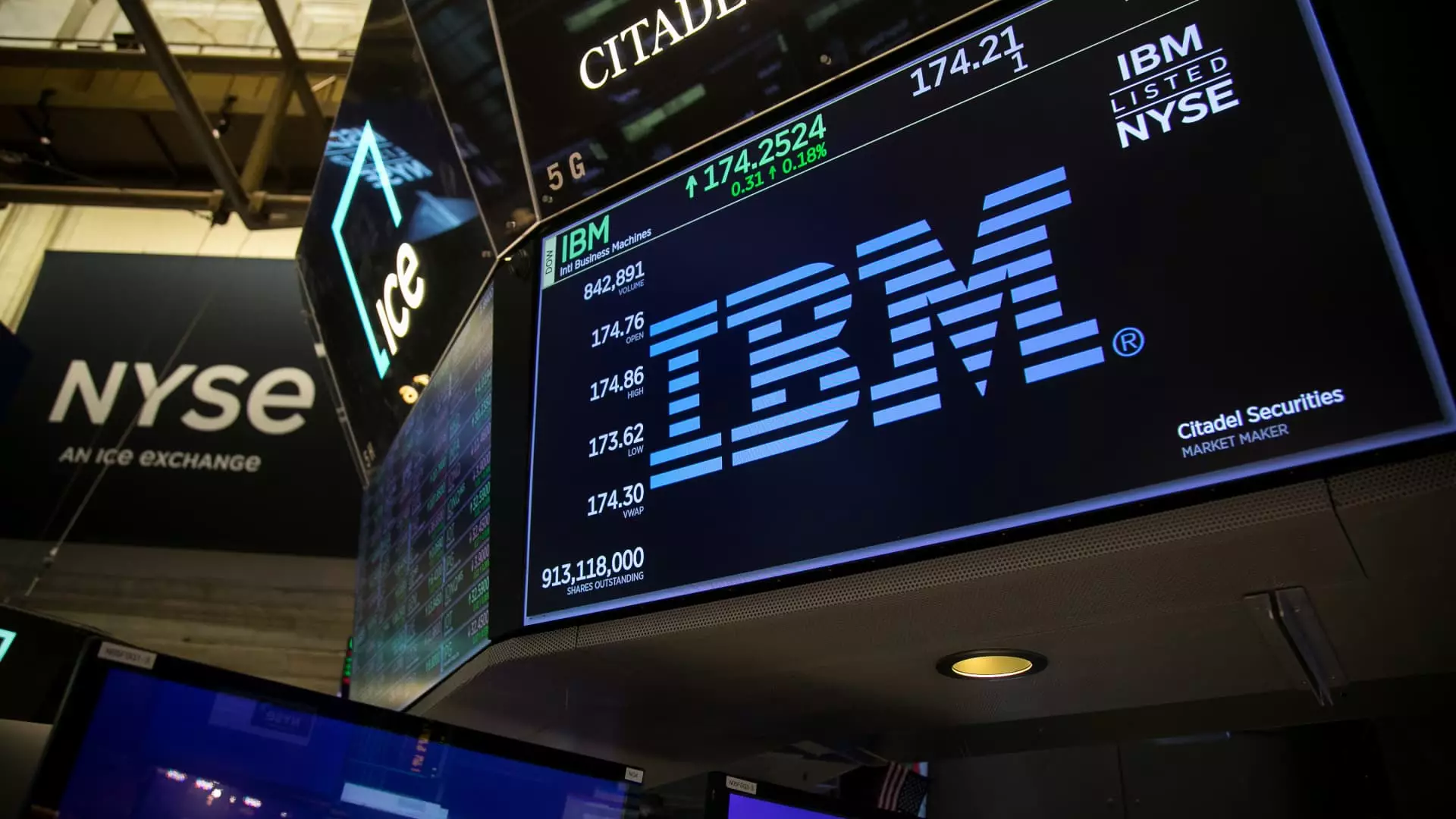As market dynamics shift and businesses pivot towards innovative technologies, the performance of stocks in the Dow Jones Industrial Average is proving to be a narrative worth exploring. Notably, IBM has made headlines for its notable 27% stock price increase over the last three months, but the critical perspective from market analyst Scott Nations raises questions about its long-term viability, particularly in the growing field of artificial intelligence (AI). This article examines recent performances of IBM, Uber, and Mattel, analyzing both the strengths and weaknesses that shape their futures in a competitive tech landscape.
IBM’s fourth-quarter results last week showcased an impressive performance, with their earnings and revenue surpassing market expectations. Reporting a $7.9 billion lift in software revenue—thanks in large part to the rising demand for AI technologies and successful contributions from its Red Hat Linux division—IBM appears to be in a solid position. However, as Nations points out during a recent appearance on CNBC’s “Power Lunch,” the company’s approach to AI is garnering skepticism.
IBM’s strategy appears to diverge from its competitors, leaning towards a method dubbed “DeepSeek,” which remains to be seen whether it will yield the desired results. Nations takes a cautious stance, emphasizing the importance of clarity and long-term proof in what has become a highly competitive artificial intelligence sector. Adding to the complexity, the emergence of China’s AI model, developed at a mere $6 million cost, raises additional concerns regarding IBM’s market position. Nations suggests waiting for more definitive outcomes before making a solid investment decision in the company.
Turning to Uber, recent developments present a contrasting narrative. After a quarterly earnings report that disappointed investors, leading to a stock sell-off, Nations sees an opportunity amid the turbulence. He notes that Uber is actively engaging in stock repurchases, demonstrating a commitment to enhancing shareholder value. Furthermore, the anticipation of launching autonomous robotaxi rides in Austin, Texas, through a partnership with Alphabet’s Waymo division exemplifies Uber’s ambition to capitalize on the burgeoning autonomous vehicle market, estimated to yield a trillion-dollar opportunity.
Despite promising projections, Uber’s CEO, Dara Khosrowshahi, acknowledges the extensive timeline required for realizing these goals, underscoring that substantial technological advancements and market adaptation may take “many, many years.” While aggressive investments in autonomous technologies may not provide immediate benefits, it positions Uber strategically for future growth. Nations’ focus on buying the dip could symbolize investors’ belief in Uber’s long-term viability despite short-term volatility.
In a noteworthy shift, Mattel, the iconic toy manufacturer, has shown remarkable resilience, with its shares jumping 14% following better-than-expected earnings. With reported profits of 35 cents per share and revenues reaching $1.65 billion, the toymaker outperformed Wall Street expectations, inviting investor optimism. Nations acknowledges Mattel’s increased stock buyback authorization for 2023 and 2024, equating stock buybacks with heightened investor interest and confidence.
While Mattel’s performance speaks volumes about its adaptability in the ever-evolving toy market, one must remain cautious. Nations has advised that he would consider purchasing shares if they dip below the $20 mark, indicating a tactical approach to investment even amidst positive developments. The company’s recent performance could serve as a reminder that even within the toy industry, shifts in consumer preferences and market conditions can create volatility.
The recent market trajectories of IBM, Uber, and Mattel reflect the complexities that underpin the tech and consumer goods sectors. While IBM’s rise in the AI domain remains uncertain amidst competitive pressures, Uber’s commitment to innovation and market potential in autonomous vehicles provides a silver lining amidst a recent downturn. Moreover, Mattel’s strategic maneuvers illustrate the critical importance of adaptability in an ever-changing landscape.
Investors like Scott Nations embody the cautious optimism needed when navigating such complexities, advocating for a balanced approach that considers both immediate performance and long-term potential. As the tech industry continues to evolve, understanding these dynamics will be essential for making informed investment decisions.


Leave a Reply